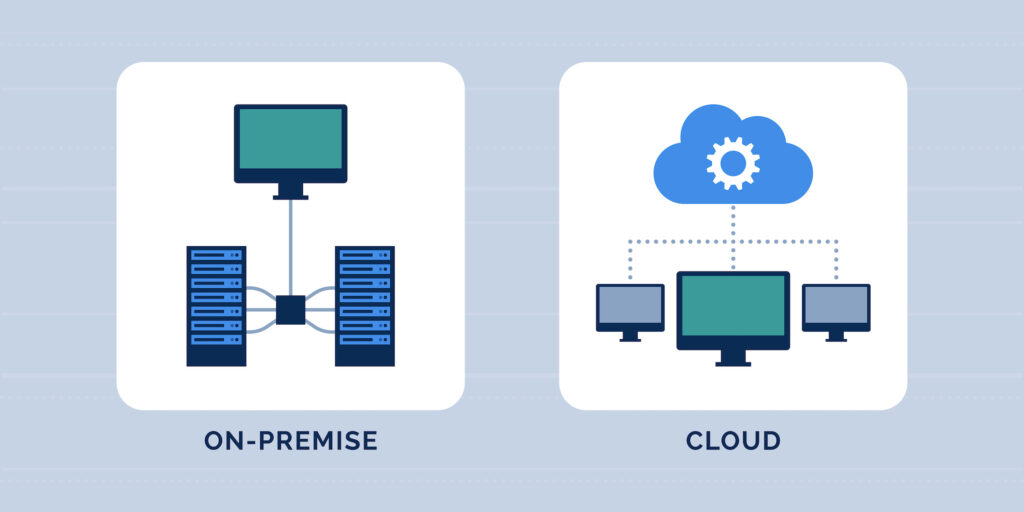When it comes to customer relationship management systems, companies are faced with the choice of relying on a cloud-based or on-premise system. Both have their advantages and disadvantages. Which system might be more worthwhile for which company is what we want to explore in this article.
Cloud-based CRM systems
Cloud-based CRM systems are systems that are hosted on a provider's servers and accessed via the Internet. A cloud-based CRM therefore does not require a local infrastructure and can be used from any location with an Internet connection. This brings several advantages and disadvantages.
- Access: One of the biggest advantages of cloud-based CRM systems is that they can be accessed from anywhere as long as there is an Internet connection. This makes it easier for remote employees to access and update customer information, and for companies to manage customer relationships from multiple locations.
- Scalability: Cloud-based CRM systems can be easily adapted to a company's growing needs without overloading local resources.
- Cost Efficiency: Cloud-based CRM systems can be less expensive than traditional systems because there is no need to purchase and maintain hardware, and costs are charged on a monthly basis.
- Data security/updates: Cloud-based CRM providers often take responsibility for data security and ensure regular data backups and updates.
- Dependence on the Internet: The great advantage of a cloud-based CRM can be a disadvantage at the same time: The dependence on the Internet connection: cloud-based CRM systems can be used from anywhere, but they depend on a stable and fast Internet connection. If the connection is slow or unavailable, this can affect the performance of the CRM system.
- Safety: Although cloud-based CRM systems are generally secure, there is still a risk of data breaches. Companies need to make sure they choose a reputable provider and take appropriate security measures to protect their data.
- Adjustment Restrictions: A cloud-based CRM usually only has limited options for customization and integration with other systems. It is therefore important to carefully review the functionalities of the CRM before deciding on a provider.
On-premise CRM systems
On-premise CRM systems are installed and operated on a company's local server. It is not provided via the Internet like a cloud-based CRM, but is managed by a company itself. This has certain advantages, but also disadvantages.
- Control over data security On the positive side, companies have complete control over their data security, data integrity and customizations because the software is installed on their own servers. This can be important for companies with high data security requirements.
- Adaptability On-premise CRM systems are highly customizable, which means that companies can make changes and modifications to the software to meet their specific needs. Software tools developed specifically for the company can also be integrated.
- Costs Compared to cloud-based CRM systems, on-premise CRM requires a higher initial investment due to hardware costs (such as servers, storage, and network equipment), licensing costs, and implementation costs. In addition, companies need to invest regularly in maintenance and upgrades to keep the system up to date.
- Maintenance: On-premise systems need to be regularly maintained and updated, which can be time-consuming and, without an in-house IT department, more costly than a cloud variant.
- Mobility: On-premise CRM systems are less mobile because they are installed directly on a company's local servers and require a fixed connection to the local servers to fully function. This means that employees who work on the road or from home may not be able to access the system or add data.
What is worthwhile for whom?
The answer to this question ultimately depends on the specific needs and budget of each company. If you are a small business with a limited IT budget, a cloud-based CRM system may be a better choice. If you are a larger company with many employees, have complex data and security requirements, such as those found in the financial or healthcare industries, and already have specific customization and enhancement needs in mind, an on-premise CRM system may be a better choice.
Conclusion
Because both systems have their advantages and disadvantages, it is important to know your own requirements for the system. Only then will your investment in a CRM really pay off. If you are unsure about your requirements and the choice of system, you will find a competent partner in us.

